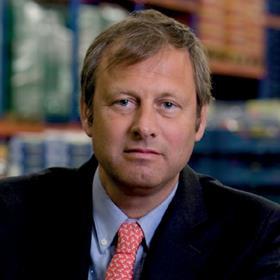
Francis Kint is CEO of Univeg’s fruit and vegetable business, based in Belgium. Francis will share his extensive industry knowledge as a speaker at fresh Nordic on 23-24 May in Copenhagen, Denmark.
How long have you been in the fresh produce industry and what is your background from before joining Univeg?
FK: I have a ‘mixed functional background’. I am a civil engineer, who redirected to a career in finance. I came into the fresh produce industry as a director of financial planning for Chiquita in 1994. My life changed in 1996, however, when my boss told me he wanted me to “make the money instead of counting the money” and gave me responsibility over Benelux, the UK and Ireland. I immediately enjoyed working with customers and partners, but I did not forget that the numbers needed to be watched and, ultimately, to work.
What is the most important thing you have learnt about the industry in that time?
FK: That ‘all lights have to be on green’ before your product reaches the final consumer. In our industry, we are rarely talking directly to the consumer. This means the full chain needs to be positive towards your proposal, from partners and distributors to retailers. If just one light is red, your product doesn’t make it. This is the main difference with fast-moving consumer goods categories, where the brand and the differentiation of the product can pull it from the producer to the consumer. Teamwork and modesty are therefore important in our industry.
Who in the industry do you most admire or respect?
FK: Logically, the name that comes to mind is Hein Deprez, the founder of Univeg. He has been a visionary in our industry in many respects.
Firstly he has contributed to reversing the activities from a production-driven ‘push’ model to a consumer-driven ‘pull’ model. This has not been easy to realise because of the factors mentioned above. But, when it is, it leads to higher consumer and customer satisfaction, and a reduction in waste in the supply chain, which will be one of the main themes for the future.
Secondly we have learnt to work with our retail customers instead of having the typical adversarial relationship that exists between the agricultural world and the retail world. All retailers fight to win the battle of the best fresh produce section, but it is the toughest battle in a dynamic, sometimes unstable, environment. There is an endless list of projects regarding this, and this can only be realised through teamwork.
Where do you see the industry moving in the future?
FK: As most people in our industry, I believe that pure ‘one-man-show’ trading, which is still very present today, will be replaced by teamwork on the full value chain – from producers to the retail shelf. Those who can best put this into practice are the winners of the future. This teamwork will also involve external parties, such as agrichemical and technological partners.
Do you have any advice for companies on how to weather stagnating consumption levels and the current climate in general?
FK: The first answer will lie in turning to the developing world, which is beginning to import an increasing part of its fresh produce for its own consumption.
Where the western world and its stagnating consumption is concerned, I am disappointed that so many consumers know what they should eat but still behave differently, despite awareness campaigns (although I admit to sometimes taking a candy bar instead of a piece of fruit when paying for petrol).
However, I believe the overall advantages of fresh produce will prevail because the cost structures of competing food categories do not yet include externalities such as the burden on the health system and the pressure on the resources of the environment. They will have to do that soon.



